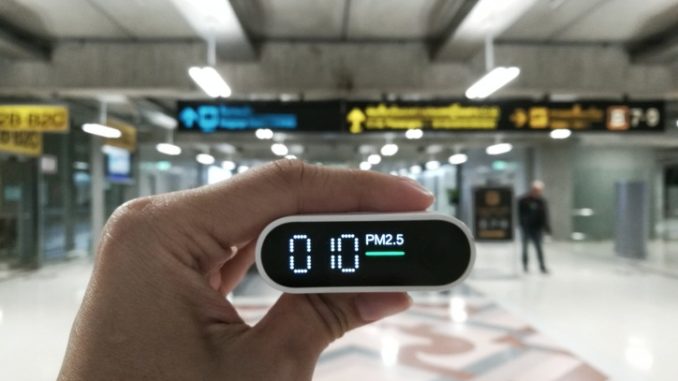
A report by the royal colleges has highlighted the impact of poor air quality on children’s health
This is an edited version of an article first published by The Guardian
Medical experts are calling for councils to be given new powers to tackle indoor air pollution amid mounting evidence it is threatening the health of children in schools, nurseries and homes across the UK.
The Royal College of Paediatrics and Child Health (RCPCH) and the Royal College of Physicians (RCP) want local authorities to be able to compel schools, and other public buildings with poor air quality, to make urgent improvements.
The move comes as a new report released by the two medical bodies highlights the impact indoor air pollution has on a range of childhood health problems, from asthma to conjunctivitis, dermatitis and eczema. Professor Jonathan Grigg, a paediatric respiratory consultant from the RCPCH, said the report painted a worrying picture.
“We’re finally paying attention to the quality of our outdoor air and this is long overdue [but] it’s harder to get population level data on the quality of indoor air. Children in the UK spend most of their time indoors, with just 68 minutes spent outside on an average day. Too many of our homes and schools are damp and poorly ventilated – this is adversely affecting the health of children.”
Sources of indoor air pollution include smoking, damp, traffic fumes, cooking, wood burning, dust, chemicals from building materials and furnishings, aerosol sprays, and cleaning products. The authors of the report – a review of 221 previous studies – warn that indoor air quality tends to be poorer in low-quality housing and older buildings where ventilation may be inadequate or insufficient.
Professor Stephen Holgate, special adviser for the RCP, said people living in poorer households often had fewer choices about where to live and where to go to school. “More than 3 million families live in poor quality housing in the UK. Most will not have enough money to make improvements and have no option but to make do with damp, under-ventilated environments.
“We need to offer support at local authority level – likewise with schools. If we ask our children to spend their childhood days in unhealthy spaces, then we’re storing up problems for future health.”
A failure to meet minimum standards
The report recommends that local authorities should have the power to require improvements where air quality fails to meet minimum standards in local authority schools and houses, including:
- Legally binding performance standards for indoor air quality, from ventilation rates to maximum concentration levels for specific pollutants.
- Air quality tests when local authority construction is complete and before the building is signed off.
- Compliance tests after the construction stages, and assessment of buildings once occupied.
- Free indoor air testing for residents and a national fund to support improvements for low income families.
David Renard, the Local Government Association’s transport spokesman, said councils would “take on board any good practice guidance that helps continue to protect vulnerable people and keep them safe”. But he also called for ‘developers, manufacturers, households and businesses’ to do more to tackle indoor air quality.
“For air quality plans to be successful they need to be underpinned by local flexibility and sufficient funding, while issues around resourcing and capacity also need to be addressed, as well as educating the public around the need to reduce pollution,” he said.
Don’t forget to follow us on Twitter, or connect with us on LinkedIn!

Be the first to comment